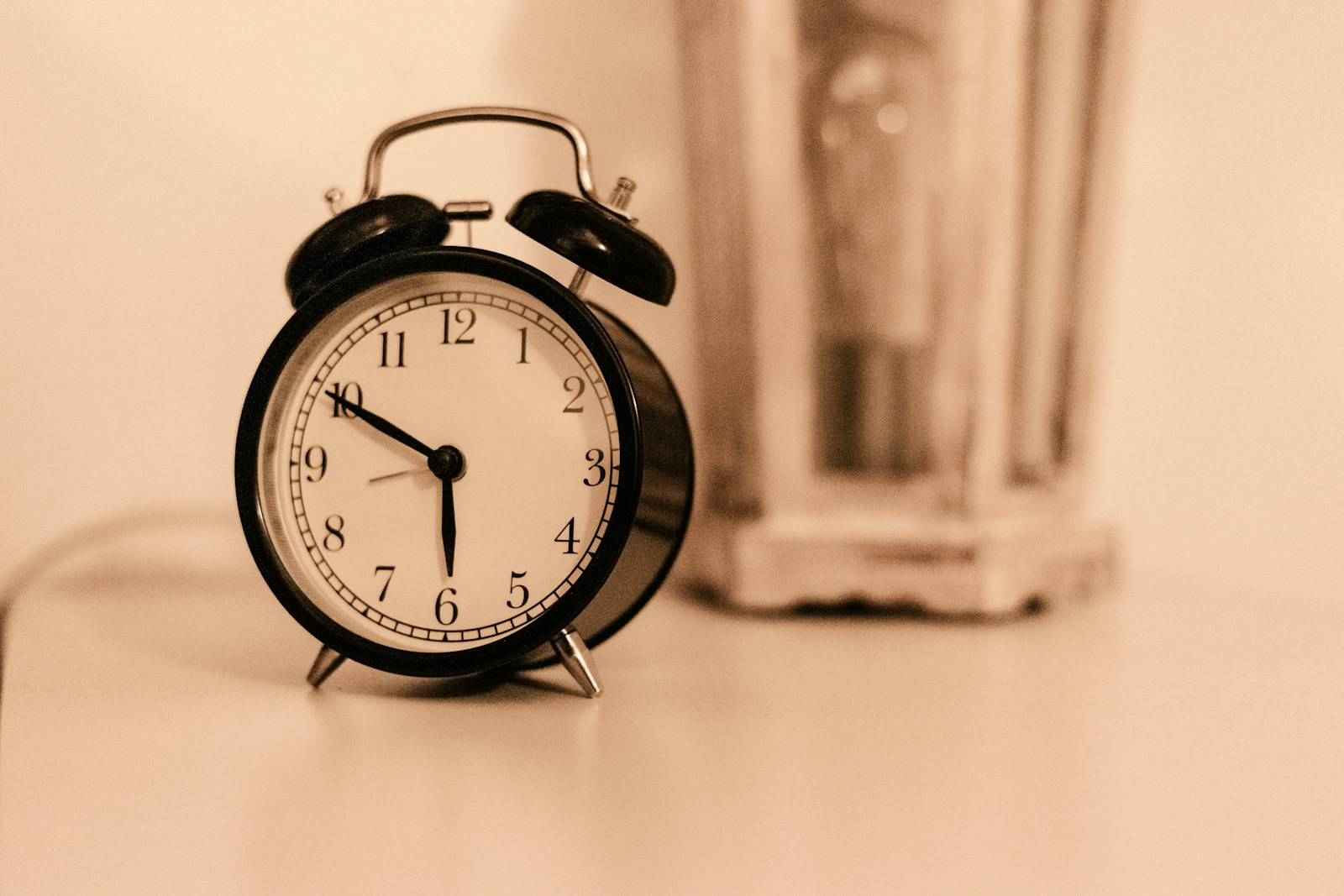For many people, the sound of an alarm clock is a necessary signal to start their day. Yet, some individuals find themselves waking up moments before the alarm rings, almost as if their bodies are tuned to an internal clock. This phenomenon is both common and puzzling, leaving many to wonder why it happens and what it says about the human body’s relationship with time.
While it may seem like an uncanny ability, waking up just before an alarm goes off is largely the result of a complex interplay between the body’s internal clock, known as the circadian rhythm, and the hormonal and neurological systems that regulate sleep and wakefulness. These factors work together in a finely tuned way that helps the body anticipate regular patterns, including waking times. In this article, we’ll explore the mechanisms behind waking up before an alarm, delving into the science of circadian rhythms, the role of stress hormones, the power of sleep cycles, and the psychological factors that contribute to this fascinating phenomenon.
The Body’s Internal Clock: The Circadian Rhythm
At the heart of our ability to wake up at predictable times is the circadian rhythm—a 24-hour internal clock that regulates sleep, wakefulness, body temperature, hormone production, and other physiological functions. Governed by the suprachiasmatic nucleus (SCN) in the hypothalamus, the circadian rhythm is influenced by environmental cues, primarily light and darkness. As night falls, the SCN signals the pineal gland to release melatonin, a hormone that promotes sleep. As dawn approaches, melatonin levels drop, and the brain becomes more alert, preparing the body to wake up.
The circadian rhythm is finely tuned to regular patterns of light exposure and consistent sleep schedules, helping the body to anticipate when to go to sleep and when to wake up. In individuals with consistent sleep routines, the body “learns” the expected wake-up time, leading it to prepare for waking up in advance. This process, called circadian entrainment, can result in the body naturally anticipating wakefulness just before an alarm is set to go off, as the brain has already been trained to expect a specific waking time.
The Role of Cortisol: The Wake-Up Hormone
One of the key factors that influences waking up just before an alarm is the body’s release of cortisol, often referred to as the “stress hormone.” While cortisol is best known for its role in the stress response, it also plays an important part in regulating the body’s sleep-wake cycle. As morning approaches, the body begins to produce cortisol in a predictable pattern called the cortisol awakening response (CAR). Cortisol levels gradually increase in the early hours, peaking just before waking up, to help stimulate alertness and prepare the body for the day.
In people with regular sleep schedules, the body’s release of cortisol becomes synchronized with their expected wake-up time, providing a natural boost of energy that primes the body to wake up. This phenomenon is one of the reasons some people wake up feeling alert and energized just before their alarm goes off. For these individuals, the brain has become accustomed to a regular wake-up time, and the hormonal response is set in motion before the alarm ever sounds. The rise in cortisol contributes to a heightened state of alertness, allowing them to wake up naturally, without the shock of an alarm.
Sleep Cycles and the Timing of Wakefulness
Sleep is not a uniform state but rather consists of cycles that repeat throughout the night. Each sleep cycle lasts around 90 minutes and includes stages of light sleep, deep sleep, and REM (Rapid Eye Movement) sleep. As the night progresses, the duration of REM sleep—the stage associated with vivid dreaming—increases, while deep sleep decreases. The transitions between these stages affect the ease with which we wake up, as waking during lighter stages of sleep is generally easier and more natural than being awakened from deep sleep.
People who wake up just before their alarm may be ending a sleep cycle as morning approaches, particularly if they are in a lighter stage of sleep. The timing of wakefulness can align with the end of a REM cycle, allowing them to wake up without the grogginess associated with being roused from deep sleep. When the sleep cycle coincides with the regular waking time, it becomes easier for the person to wake up naturally before the alarm, feeling refreshed and alert. This alignment between sleep cycles and the body’s internal clock enhances the likelihood of waking up just before the alarm sounds.
Psychological Conditioning and Anticipation
In addition to physiological factors, psychological conditioning plays a role in waking up before an alarm. People who consistently use an alarm to wake up at the same time may develop a subconscious awareness of their waking time, allowing their body to anticipate it. This is a form of psychological conditioning in which the mind becomes familiar with the routine and primes the body to wake up at the expected hour. Over time, this conditioning allows the body to anticipate the wake-up time, so it becomes accustomed to waking up naturally before the alarm.
Additionally, people who are concerned about missing their alarm or who have an important event or responsibility in the morning may experience heightened levels of anticipatory stress. This low-level stress can prompt a natural wake-up response, as the mind is subconsciously prepared to wake up before the alarm. Studies have shown that people with early commitments, such as a flight or meeting, are more likely to wake up before their alarm due to increased mental alertness. This stress-related anticipation heightens the body’s readiness to wake up, allowing some individuals to bypass the alarm and wake naturally.
Sleep Regularity and Training the Body Clock
For people who wake up before their alarm, sleep consistency is often a key factor. Going to bed and waking up at the same time every day, even on weekends, helps reinforce the body’s natural sleep-wake rhythm, a process called sleep regularity. By following a set routine, the body can be trained to follow a predictable schedule, optimizing both the quality and timing of sleep.
This regularity enables the body’s internal clock to become entrained to a specific wake-up time. Over time, the brain learns to expect this routine, causing the body to adjust its internal cues for sleep and wakefulness accordingly. For those with consistent sleep habits, the regular timing of the body’s sleep processes—such as melatonin production and cortisol release—naturally aligns with the anticipated waking time, making it easier to wake up on time without relying on an alarm.
The Role of Light and Melatonin in Morning Wakefulness
Light exposure is one of the most powerful external factors that regulate our circadian rhythm. In the morning, exposure to natural light signals the brain to suppress melatonin, the hormone responsible for sleepiness. For people who sleep in environments with natural light, the gradual increase in brightness as morning approaches can serve as a natural cue for waking up. This exposure prompts the body to decrease melatonin production and increase alertness, contributing to a smoother transition from sleep to wakefulness.
In environments without natural light, people may still wake up before their alarm if they have a strong circadian rhythm and regular wake-up time. However, for individuals struggling to wake up naturally, exposure to light—especially blue light in the early morning—can help train the circadian rhythm. For those who routinely wake up before their alarm, this natural cue from light may assist in the body’s anticipation of wakefulness, aligning internal cues with the environment and reinforcing regular waking times.
The Impact of Stress and Anxiety on Waking Patterns
Stress and anxiety can play a major role in early wakefulness, particularly for individuals who experience pre-alarm awakenings. When people are stressed about the coming day, whether due to an important meeting, presentation, or other responsibilities, the brain’s arousal systems may become more sensitive, prompting the person to wake up early. This response is driven by the body’s fight-or-flight response, which heightens alertness in preparation for potential challenges.
Increased levels of cortisol due to stress can disrupt normal sleep cycles, causing individuals to wake up earlier than intended. For people who are naturally more anxious or have a tendency to overthink, this stress-induced wakefulness can be a regular occurrence. While stress and anxiety are not ideal for sleep quality, they do contribute to early waking, sometimes in anticipation of an alarm, as the brain’s heightened arousal state prepares the person to face the day.
The Influence of Aging on Sleep and Wakefulness
The tendency to wake up before an alarm may also be influenced by age-related changes in sleep patterns. As people age, their circadian rhythms shift, causing them to feel tired earlier in the evening and wake up earlier in the morning—a phenomenon known as advanced sleep phase syndrome. Additionally, older adults tend to experience lighter and more fragmented sleep, making them more likely to wake up before an alarm. While this shift can be frustrating for those who desire more sleep, it is a natural part of the aging process.
Aging also affects hormone production, including the release of melatonin and cortisol, which regulate sleep-wake cycles. Reduced melatonin production can lead to earlier wakefulness, while changes in cortisol patterns can affect sleep duration and quality. Older adults who wake up before their alarms are often simply following the natural changes in their sleep biology, with early waking becoming a routine part of their sleep experience.
The Relationship Between Chronotype and Waking Patterns
People have different chronotypes, or natural sleep-wake preferences, which influence when they feel most alert or sleepy throughout the day. Chronotypes are typically categorized as “morning types” (larks) or “evening types” (owls). Morning types, who are naturally inclined to go to bed early and wake up early, are more likely to wake up before their alarm due to their natural circadian rhythms aligning with earlier wakefulness.
Evening types, on the other hand, may find it more challenging to wake up before their alarm, as their internal clocks are set later, making them more likely to sleep in. However, chronotype flexibility can occur, and with consistent sleep routines, evening types may also train their bodies to wake up at specific times. For morning types, however, pre-alarm awakenings often come naturally, as their bodies are already tuned to early morning alertness.
Conclusion: The Intricacies of Waking Before an Alarm
The phenomenon of waking up before an alarm is a fascinating blend of biological, psychological, and environmental factors. Our body’s circadian rhythm, the release of hormones like cortisol, the timing of sleep cycles, psychological conditioning, and even our light environment all contribute to the ability to wake up at predictable times. For individuals with consistent sleep schedules, these factors work in concert to prepare the body for waking up, allowing them to anticipate the start of the day.
Ultimately, waking up before an alarm reflects the incredible adaptability of the human body. By tuning into regular patterns, optimizing sleep quality, and maintaining consistent routines, people can align their internal rhythms with their waking times, reducing reliance on alarms. Whether it’s due to a well-trained body clock, subconscious anticipation, or the influence of natural light, the ability to wake up just before an alarm reveals the powerful ways our bodies synchronize with time, even as we rest.




